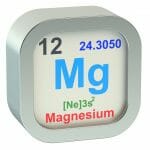A drug that is currently treating liver disease and has been for decades may also help those with Alzheimer’s. Sporadic and familial Alzheimer’s is known to be caused by a mitochondrial dysfunction, prior to the onset of Alzheimer’s symptoms. The mitochondria of the cell is often referred to as the powerhouse of the cell as it regulates the metabolism of energy, cell survival, and cell death.
Ursodeoxycholic acid (UDCA) is a drug currently used to treat liver disease. This drug acts by changing the shape of the mitochondria in the cell which improves cell function. There is reason to believe that this can cause neuroprotective effects in Alzheimer’s disease. Unlike many drugs that have not had approval and have not been studied enough, ursodeoxycholic acid is already approved and in clinical use for liver disease which makes it substantially easier to be approved.
For the time being, there is no government funding towards this research for Alzheimer’s and there is still much to learn on the relationship between ursodeoxycholic acid and the restoration of cells damaged by Alzheimer’s.
Alzheimer’s disease is the most common neurodegenerative disorder. There are currently 850,000 people with Alzheimer’s in the United Kingdom. That number is expected to increase to over 2 million by 2051.
A drug for liver problems might help repair neural cells affected by Alzheimer’s Disease #HealthStatus
Follow HealthStatus
Tweet Now
Key Points:
- 1Mitochondrial abnormalities are found in many cell types of those suffering with Alzheimer’s disease.
- 2Mitochondria regulate energy metabolism in cells.
- 3Liver disease drug ursodeoxycholic acid (UDCA) improves mitochondrial function.
See the original at: https://medicalxpress.com/news/2018-08-liver-disease-drug-cells-alzheimer.html








Reply